The Complete CasinosLists Guide to Responsible Gambling
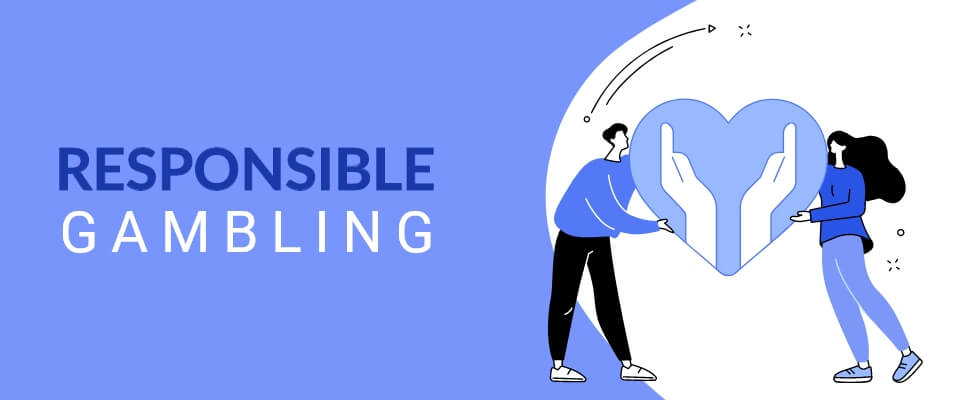
Responsible Gambling
Both beginners and seasoned gamblers need comprehensive and accurate information regarding the potential dangers of this habit. My aim with this page is to offer a starting point for further research, along with a few actionable tips for keeping yourself safe while gambling.
What Is Responsible Gambling
Responsible gambling is the facilitation of a safe and socially dependable gambling environment where players can deliberately engage in this activity for fun and where the potential for harm is minimized through various tools, regulations, and campaigns.
Responsible gambling is an umbrella term, meaning different things for different gambling agents, but that reunites them all under the same goal: protecting players from gambling-related harm.
| For | Responsible Gambling means |
|---|---|
| Jurisdictions | Establishing well-researched and up-to-date regulations for casino operators so that these provide enough tools and conduct their business in an ethically responsible way. |
| Casino Operators | Full compliance with the local legislation, offering access to a range of tools and information so that players have an easier time controlling their gambling habits. |
| NGOs | Running educational campaigns and sparking conversations about responsible gambling topics between players, casinos, and regulatory bodies. Raising funds for and running treatment programs. Offering support to problem gamblers. |
| Affiliates (like us) | Offering enough information so players can make better decisions regarding gambling. Educating readers about potential harms and providing actionable tips for staying in control. |
| Players (like you) | Staying informed about the effects of gambling and monitoring their gameplay to spot any signs of problem gambling early on. Using responsible gambling tools to their advantage and seeking professional help as soon as they notice any worrying behaviors. |
One common misconception is that responsible gambling only deals with problem gamblers when, in fact, responsible gambling is more about prevention than treatment.
A responsible gambling program should target all players because its goal is to educate and ensure that no one falls unwittingly into a serious problem.
The Effects of Gambling on the Human Brain
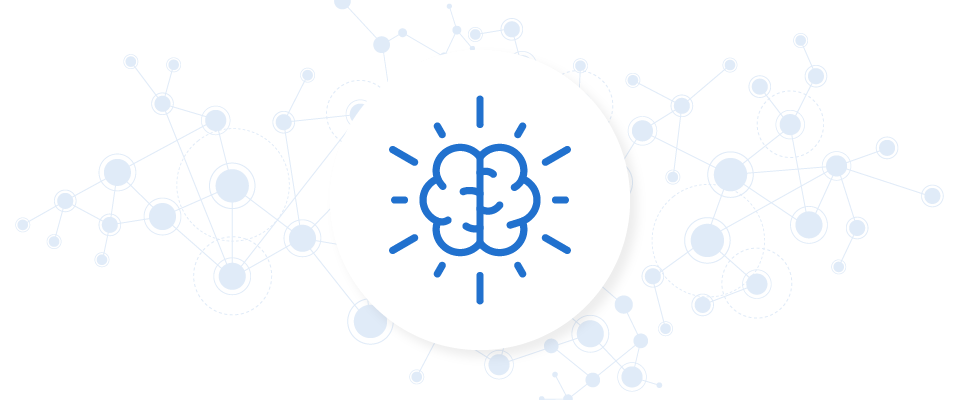
Why Do People Gamble?
The answer is not as simple as “the chance of winning money prizes.” People gamble for a variety of reasons, including:
- The natural high we receive when anticipating rewards, especially in high-risk situations.
- A need to escape from negative aspects of their daily lives.
- The glamour image of gambling, as portrayed in media.
- Wide participation and cultural acceptance make it easier for people to try.
Gambling can be a fun, harmless hobby when framed healthily and paired with other activities. Players who educate themselves on potential dangers and use all tools available to play responsibly typically don’t experience any issues.
How Does a Gambling Addiction Form?
For a long time, medical professionals considered problem gambling a compulsion rather than an addiction. In short, it was believed that people gambled in a disordered manner to relieve anxiety, just like some people could not stop biting their nails.
What do doctors say
The fifth edition of the Diagnostic and Statistical Manual of Mental Disorders, published in 2013, changed the name of Pathological Gambling to Gambling Disorder, recognizing this problematic behavior is more similar to substance abuse disorder, thus encouraging professionals to treat it like they would a substance addiction.
The addiction forms due to what’s called a variable ratio reinforcement schedule. Random, unexpected rewards, like those in gambling, are the fastest and easiest way to train our brains to crave that activity.
When players gamble to soothe negative emotions or alleviate loneliness, the habit can quickly become an addiction because they’re training themselves to seek the potent “highs” of gambling whenever they feel down.
How to Gamble Responsibly
Gambling responsibly means understanding the dangers and closely monitoring your emotions every time you gamble. It means keeping this habit at arm’s length and only gambling as a deliberate, informed choice.
10 Tips for Responsible Gambling
- Expect to lose.
- Don’t gamble when experiencing negative emotions.
- Don’t chase losses.
- Never think of gambling as an income source or “easy money.”
- Don’t use credit cards or borrow money for gambling.
- Never gamble under the influence of alcohol or drugs.
- Set money and time limits and stick to them.
- Take frequent breaks from gambling to focus on other pleasurable activities.
- Cultivate other hobbies and interests to create a healthy balance in your life.
- Make sure you understand how gambling addiction works, how to spot the early signs, and where to get help if you suspect you’re having a gambling problem.
Responsible Gambling Tools for Players
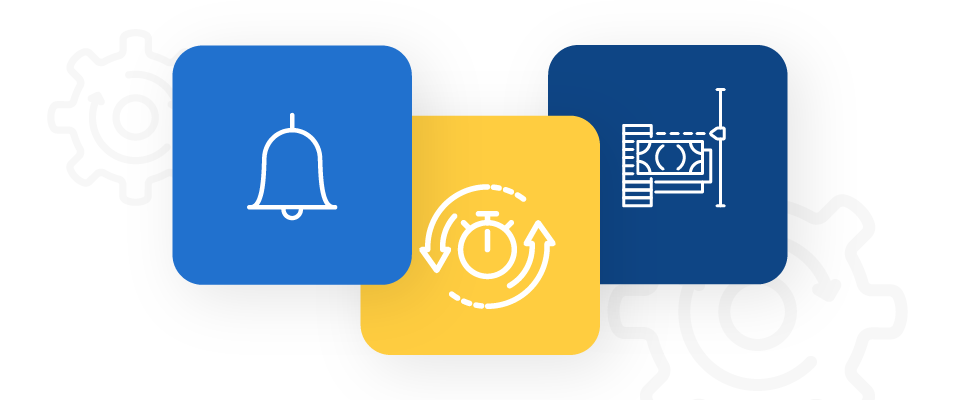
Regulated gambling sites are well-equipped to help players keep this habit under control.
The tools they provide are generally required to obtain a license in a certain jurisdiction, and casinos might even face fines if they don’t allow easy access to these tools or do not offer adequate support to players in distress.
Some of the most common and effective tools in online casinos include the following.
Deposit Limits
You have the option to decide the amount of money you’ll deposit in a given period. These can be monthly, weekly, or even daily limits, and the casinos will restrict any further deposits once you meet the threshold you’ve set for yourself.
Wager Limits
An author whose books have been rejected several times will feel a growing need to write a bestseller with each failure. Gamblers tend to do something similar by increasing their wagers during a losing streak, believing that a larger win will account for the money they’ve lost.
Sticking to a wagering limit is a great idea, and it’s a lot easier to do with a hard rule set in place in your casino account.
Time Limits
Frequent breaks are essential to ensure you’re not becoming too mesmerized by gambling and you keep several other interests that bring you pleasure.
If you’re bad with tracking time or you often find yourself gambling for far more than you intended, time limits can help you stay on track and only gamble on your terms.
Optional Time-Outs
Casinos allow you to “block” yourself from gambling if you feel it’s becoming too much to handle. You can request a time-out from your casino account and set your own period. Once set, you won’t be able to connect to that site until the period is over.
This should help you take a step back and re-assess your situation if you suspect you might be speeding toward an issue.
Periodic Reminders
One of the most common responsible gambling tools employed by casinos is pop-up messages displayed periodically during your gameplay.
These are meant to remind you how much time has passed since you started playing, the amount of funds you’ve wagered and won, or other helpful information to give you a reality check.
A meta-analysis of 18 studies has shown that these reminders have a significant positive effect on gambling behavior, so make sure you turn these on if you have the option.
What to Do if You Are Dealing With Problem Gambling
How To Recognize a Gambling Addiction
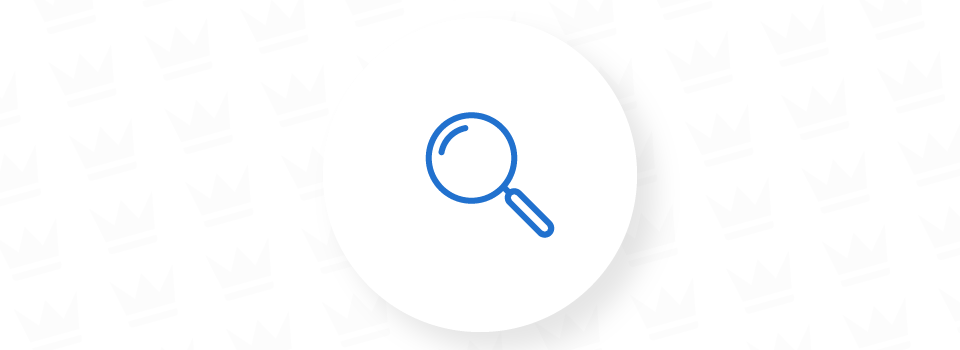
The easiest way to assess whether you have a problem gambling habit is to take a step back and gather as much information as possible.
Educate yourself regarding the early signs, look at yourself objectively and determine your motivations for gambling, and use monitoring tools such as deposit history to get a bird’s eye view of the gambling activity.
Talking to your loved ones can help since they may provide a more objective perspective of your habits. This is why I always recommend being honest about your gambling and avoiding isolating yourself at all costs, no matter how you may feel about your gambling.
Warning Signs You Might Have a Gambling Problem
- You are neglecting to pay bills or other financial obligations.
- You experience persistent changes in mood based on your wins and losses.
- You are skipping school, work, social activities, or other obligations because you prefer gambling instead.
- You are keeping your gambling a secret from family and friends, generally due to feelings of shame.
- You are lying to others (or yourself) regarding the frequency and intensity of your gambling.
- You feel like gambling at times when it would be inappropriate or when your schedule doesn’t allow you to.
You’ll find plenty of useful information in our How to Recognize Gambling Addiction guide, and you can also take a short, confidential self-assessment quiz on BeGambleAware.com.
First Steps Towards Treating Gambling Addiction
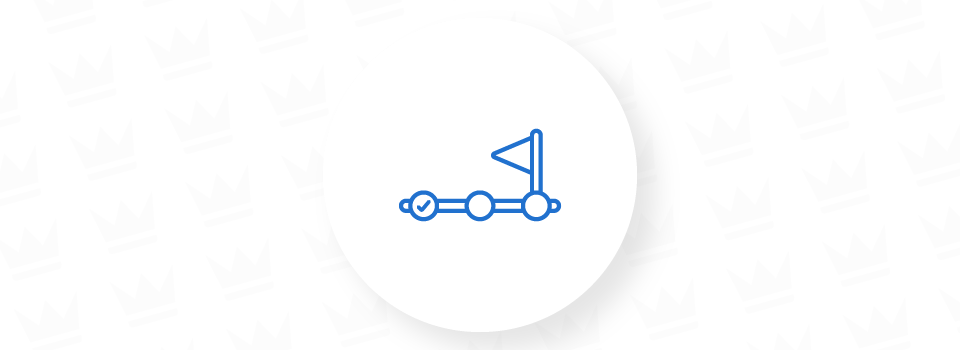
If you’re looking for ways to treat potential gambling addiction, you’ve already done the first and hardest step: recognizing you might be having a problem. There are plenty of things you can do from here, including:
- Educate yourself on the effects of gambling on your brain and how addiction develops.
- Look for treatment methods that have worked for others and might fit with your situation.
- Gather all helpful details regarding your habit and centralize them for easy reference. These are things like deposit history, frequency of gambling, and what daily life triggers usually make you want to gamble.
GamCare has a great recovery toolkit where you can get a confidential assessment and a self-guided workbook and find helpful resources like blocking software, debt management, or peer support.
Your first step should always be a good, long thought regarding this issue so you can set yourself up for treatment success. A qualified professional will want to know details like:
- What do you feel while gambling?
- When do you usually feel the strongest urges to gamble?
- Were you exposed to addictive behaviors as a child?
- What made you want to start gambling in the first place?
Even if you decide not to go the route of professional treatment, answers to these questions will help you better understand your situation and act as a foundation for further healing.
Most Effective Treatments Available
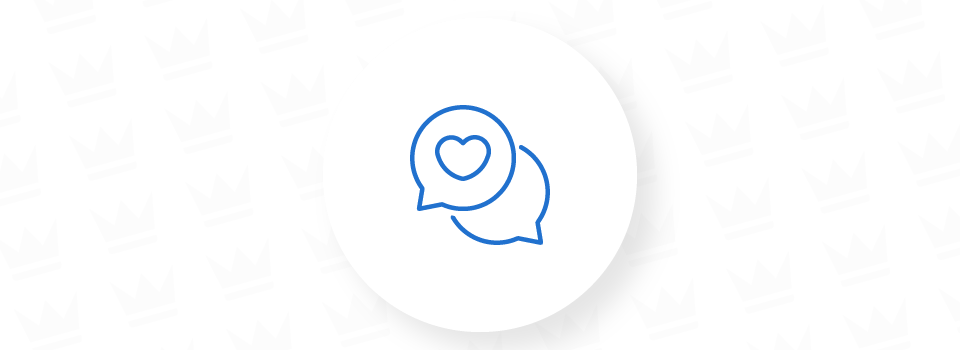
If you decide to seek professional support, you should know a bit about the currently available treatments and what works best.
Cognitive Behavioral Therapy (CBT)
This is a type of talk therapy administered by a CBT-trained professional to help you reframe your thoughts and learn new ways to cope with negative emotions. Research shows that CBT can help with:
- Reducing the number of days you spend gambling.
- Staying away from gambling for longer once you’ve stopped.
- Managing cravings and triggers.
- Challenge some of your gambling thoughts and replace them with healthier alternatives.
12-Step Programs
These are very popular for alcohol addictions. Gambler’s Anonymous has the same 12-step system to help players through peer support, rewarding small victories. Organizers hold regular meetings with gamblers and family members and offer ample resources to support their recovery. 12-step programs can help with:
- Reframing your gambling issue and gaining different perspectives from other gamblers.
- Making amends to your loved ones and building back trust.
- Keeping yourself accountable and minimizing the risk of relapse.
Medication
Sometimes, various mental health conditions or chemical imbalances can make it difficult for therapy to help all the way. If talk therapy was not entirely effective for you, recent trials have shown that medication can be helpful in treating gambling addiction.
Naltrexone, in particular, is commonly used to treat alcohol and opioid addictions. This drug “blocks” the receptors in your brain responsible for the “high,” or the euphoric feeling experienced through gambling.
Obviously, a gambling addiction is a lot easier to treat if the gambler no longer feels any pleasure from gambling. However, you should remember that naltrexone can only be prescribed by a psychiatrist initially. Your GP might be able to continue prescribing it after the initial psychiatric assessment.
Helping Someone With a Gambling Addiction
If a loved one is dealing with problem gambling, you should know there’s a big responsibility on your shoulders. But, maybe, not how you’d expect. Your priority should be keeping yourself safe mentally, physically, and financially.
Here are some key things to keep in mind if you find yourself in this position.
- You should not blame the gambler. This addiction can affect anyone, and it does not result from a weak character or morals. Create a safe space for the gambler to talk about their experience and assure them there’s nothing they should be ashamed of.
- Calmly but firmly encourage the gambler to seek professional help. If you aren’t trained to deal with mental health issues such as this, you won’t be able to help them yourself, and this will only cause more strain on your relationship.
- Don’t give the gambler any money. If you two share a joint account, make sure you limit their access to the funds. Direct them to a safer, more streamlined way to deal with debt, such as StepChange, or advise them to look for professional financial counseling.
If your loved one’s gambling addiction has caused you distress, you should consider therapy for yourself. Spouses typically develop post-traumatic stress disorder or fall into addictions of their own, such as smoking or alcohol.
It’s important to keep yourself strong to support your loved one through their recovery.
Underage Gambling and How to Prevent It
Teenage brains are very susceptible to addictions, so parents must take all necessary steps to ensure their children are well-informed and protected. Teens are two to four times more likely to develop a gambling addiction, according to the USA recovery clinic, Algamus.
Moreover, the effects of a parent’s problem gambling on their children can be devastating, as explored in a document by the National Council for Problem Gambling. To protect your children from potential gambling issues, make sure you:
- Calmly answer any questions your child might have and explain the issue in detail so they’re aware of the potential dangers.
- Closely monitor their gaming activities, and talk to your child about gaming products that resemble gambling, such as loot boxes or gacha games.
- Seek professional help immediately for children who already got into gambling, but lead with understanding and compassion so as not to cause any feelings of guilt or shame.
Guide to Self-Exclusion

What is Self-Exclusion
Regulated casinos allow players to self-exclude (SE), namely, to voluntarily block access to their account for a predetermined amount of time.
Depending on your jurisdiction, you may have access to nationwide exclusion schemes, where you can block yourself from accessing most national casinos, or operator-wide schemes, where all casinos operated by a certain brand will restrict your access with a single request.
Now, the problem with SE is that it’s a really effective way to begin treatment for a gambling problem, but it’s a tool that’s generally used by gamblers who understand they are facing an issue and are seeking help.
A recent meta-analysis of the efficiency of SE in various countries found that progress is typically hindered by players breaching the SE before the agreed-upon timeline.
Moreover, a lack of information about these programs, a failure to understand what a gambling addiction looks like, or just overall denial of the condition makes players unable to access these tools in the first place.
Summary of Self-Exclusion Regulations
| Country | Self-Exclusion Register | Periods | Revocation | Details |
|---|---|---|---|---|
| Finland | Veikkaus RG | Indefinite ban, one-year minimum | Revocation is possible after one year | Veikkaus Responsible Gambling page |
| Germany | Spielersperrsystem OASIS | At least one year, unless you specifically request a shorter ban, no shorter than three months | Not earlier than one year, based on an application - casinos decide on the applied revocation | OASIS player ban launch report |
| Norway | Gamban | Various options (a week, month) or indefinitely | Indefinite ban can be revoked after one year; shorter periods end automatically | Gamban partners with Norks Tipping |
| Sweden | Spelpaus | 1,3, 6 months, or permanent | Permanent bans can be revoked after one year; shorter periods end automatically | Spelpaus FAQs |
| Australia | BetStop | Minimum three months, up to a lifetime | You can apply for revocation after three months with a statutory declaration | ACMA BetStop Presentation |
| United Kingdom | GAMSTOP | Between 6 months and five years | No revocations | GAMSTOP Terms of Use |
How to Self-Exclude: Step-by-Step Guide
The steps you’ll need to take to self-exclude will depend on your jurisdiction. Each country has different organizations, opportunities, and rules regarding this responsible gambling practice. Here’s what to look for so you can gain the much-needed confidence for taking this step towards your recovery.
- Find an organization that provides self-exclusion services in your country. Look for the official regulatory body in your country or prominent NGOs. If you can’t find anything, it’s always worth sending some e-mails and asking whether this option is available for you.
- When you find the program, look into its details. How does it work? Will the exclusion apply to all casino brands in your country or only some? How long can you exclude for? What details do you need for your application? Are these accepted automatically?
- Look into the revocation procedure. This isn’t so you can return to gambling as soon as possible. Players can get some peace of mind knowing that their ban isn’t permanent and irrevocable. Make sure you know what you need to do in case you want to terminate your exclusion.
Quick Note
Most programs will allow you to revoke your self-exclusion with a written request or by contacting customer service. However, some countries require a bit more. In the table above, I’ve mentioned Australia requires a statutory declaration.
This should confirm that you’ve received counseling or advice on your decision to revoke SE from a qualified professional. Your listed support persons will be notified of your decision.
You can find a way to apply when you’ve got all the necessary information. Generally, you can complete an online form, where you’ll need to provide personal identification details and valid contact information.
Filling out the application shouldn’t take more than a few minutes, but you may need to wait for 24 hours or more before the exclusion becomes active.
Takeaway
A commitment to responsible gambling is a moral obligation to all agents operating within this space. You have the right to know the entire story and access all vital information regarding the dangers and ways to mitigate potential risks.
However, you should always remember that ample help is available, and you need to be open and honest about your gambling.
First, to yourself, and then, to your close ones. Don’t be afraid to ask for help if you need it, as gambling addiction can affect anyone, regardless of status, education, genre, financial situation, or character. .
